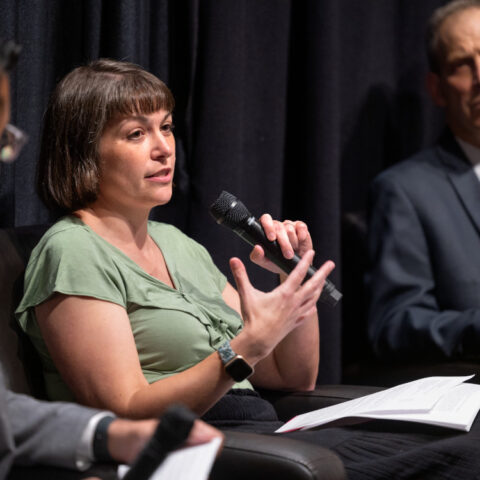Retention

This page is designed to provide Department Chairs and Deans with tools for faculty retention.
Best Practices for Retention at Cornell University
- Systematically monitor hiring and promotion decisions to eliminate unintentional bias and create opportunities for all faculty. Include salary and workload equity in your thinking about such decisions.
- Encourage transparency in operations, sharing information equitably with all faculty.
- Include faculty development opportunities in annual review conversations. Provide feedback on the faculty member’s personal assessment of the year, as well as on their plans for the upcoming year. Gather ideas from the faculty member to improve their experience in the department. For pre-tenure faculty discuss any events over the course of the past year that might necessitate a tenure clock extension.
- Encourage mid-career professional development to support faculty as they work toward promotion to full professorship. Address career development early and often, so that it is not perceived as a punitive discussion when it occurs. Encourage creativity in new directions and provide mentoring and networking resources.
- Develop and maintain objective criteria for granting tenure and promotions and inform faculty of these expectations. While it is impossible to guarantee any element of the faculty reward system, the process should be openly communicated to prevent unnecessary anxiety. Although there may be no single scale against which all cases are measured, it is still useful to share as much detail as possible. Any formal descriptions should be supplemented with more informal information- sharing opportunities such as promotion and tenure workshops offered either in the department, by the college or by OFDD.
- Foster a supportive environment by engaging senior faculty in discussions about their role as mentors, encouraging peer mentoring networks and engaging all faculty in discussions about governance and decision-making in the department.
- Recognize important faculty contributions in all areas including teaching, research, service, and creative activities.
- Use a variety of resources (salary adjustments, chaired professorships, reduced loads, leaves, bridge money, research support, mentors, etc.) to recruit and retain faculty. Resources decisions should be made on a case-by-case basis.
- Offer opportunities for faculty leadership, collaboration and networking within and across ranks.
- Advocate flexible and accommodating policies and practices that can improve the experience of faculty and help with retention.
General
New Hires:
- Prepare members of the department for the new hire’s arrival. Alert them to the new hire’s date of arrival on campus, encourage faculty to extend invitations to meals or events, speak to department faculty about the assets and opportunities the newcomer brings to the department.
- Supply the new hires with essential information about departmental operations months before their arrival on campus.
- Introduce and warmly promote the new faculty member to students at the beginning of the semester, as well as to other faculty colleagues.
- Protect early career faculty from excessive teaching, service and advising assignments. Encourage them to choose some activities to help them acclimate to the department and the university and begin to make connections with colleagues.
- Provide new faculty with training in time management, effective communication, teaching and grant-writing.
- Actively work to help new faculty make scholarly connections within and outside the department.
- Develop with new faculty annual and career plans. Involve mentors in the development of these plans.
- Establish formal guidelines for 3rd year review in preparation for tenure and promotion.
- Assign senior faculty the responsibility for actively mentoring newcomers. Prepare senior faculty to act as mentors and resources for new faculty. (See Best Practices for Mentoring).
Adapted from:
- Moody, JoAnn, (2004). Faculty Diversity: Problems and Solutions: Routledge Press.
- Washington Retention Tool kithttp://www.engr.washington.edu/advance/resources/Faculty_Retention_Toolkit.doc
- Felder, Richard and Rebecca Brent, (2003). Helping New Faculty Get off to a Good Start: Council for Chemical Research 24th Annual Meeting
